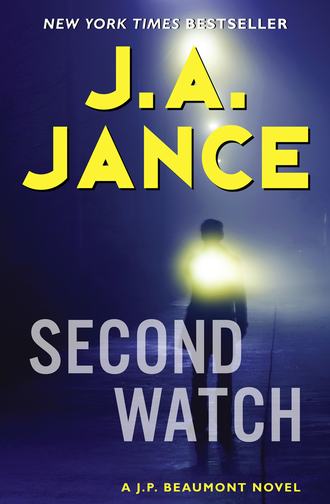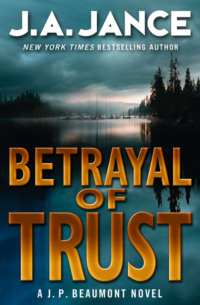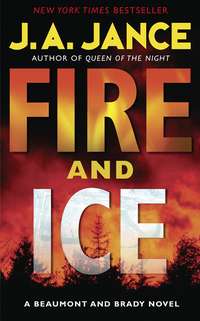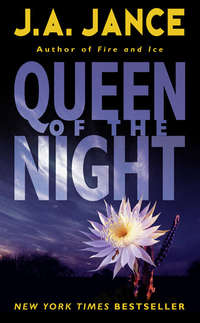
Полная версия
Second Watch
From the way he was holding the book, it looked as though he was only two-thirds of the way through. I may have been the new guy in town, but I knew better than to piss off the second lieutenant.
“Sure thing,” I said. “I’d like that.”
It’s amazing to realize that life and death turn on such small exchanges.
“Thank you,” I muttered to my hospital visitor. It was difficult to speak because of the lump in my throat.
“For what?”
“For saving my life.”
“That was my job,” he said. “You were one of my guys. So what have you done with yourself?”
“I wanted to help people,” I answered. “I’ve been a cop, first at Seattle PD and later for the attorney general’s office.”
“Married?”
I nodded. I didn’t say, “Third time’s the charm,” but that’s what I meant.
“I never got to tell her good-bye,” he said quietly.
He didn’t say who. I knew Lieutenant Davis had been engaged at the time of his death, but that was all I knew. Once he was gone, I wasn’t close enough to know all the gory details, and the guys who were close enough—the ones who were still alive—were all too broken up about losing him to talk about it. As far as they were concerned, Lennie D. was the best and the brightest. And if it’s true that the good die young, what am I doing still hanging around?
“I knew you had a girl back home,” I said.
It was his turn to nod. “Bonnie and I were engaged. I couldn’t talk her into marrying me before I shipped out. We were going to get married in Japan on my R and R.”
“Sorry,” I said.
“Me, too,” he said. “I just wish she knew how much.”
Just then Mel appeared in the doorway. The moment she did, Lieutenant Davis disappeared. The playing cards on my hospital tray vanished. I hadn’t thought I was asleep, but I must have been.
“Talking in your sleep?” Mel asked, entering the room like a fast-moving storm. “How are you feeling? Did you sleep well? Breakfast is on its way. The lady with the trays is two doors down the hall.”
Just that fast, she swept away my nighttime’s worth of strange visitations.
“I heard your voice as I was coming down the hall,” she said, kissing me lightly on the forehead. “I thought the nurse might be in here with you.”
“Nope,” I said as brightly as I could manage. “Nobody here but us chickens.” I wasn’t about to tell her I had been busy having a heart-to-heart conversation with a fifty-year-old Ghost of Christmas Past.
“I’m on my way to work,” she continued. “Thought I’d stop by and check in with you before I hit 520.”
The Seattle area branch of the attorney general’s Special Homicide Investigation Team is located in the Eastgate area of Bellevue, across Lake Washington from our downtown Seattle condo. We used to cross Lake Washington on I-90, a bit south of the 520 bridge. Now, since the state has seen fit to start charging outrageously expensive tolls on 520—the Money-Sucking Bridge, as Mel calls it—traffic on it has dropped remarkably, while traffic on I-90 has gotten terrible. Since we can afford the tolls, we usually opt for less traffic.
“From here I’ll take the scenic route,” she said. “I’ll go through the arboretum.”
Nurse Keith came in just then. “Vitals before you get breakfast,” he said, slapping the blood pressure cuff around my arm. While he was inflating it, I introduced him to Mel.
Melissa Soames is very easy on the eyes under the worst of circumstances. Dressed as she was for work, she looked downright spectacular, and I did notice that her looks weren’t lost on Keith, either. Clearly my previous musings about his possible sexual preferences were totally off the mark.
“What’s on the agenda for today?” Mel asked.
She was being a little too cheerful. That meant she was still worried about me, even though she wouldn’t come right out and say so.
“Breakfast and then a round of physical therapy,” Keith answered. “Jonas here may think he’s on vacation, but he’s wrong about that. The PT team will see to it that he doesn’t just lie around getting his beauty sleep. We’ll have him up and out of bed in no time.”
“I told Harry I’d be in today,” Mel said. “I already know he wants me up in Bellingham, but I could always call him and let him know I need to take another day off.”
Harry was Harry Ignatius Ball, Squad B’s hopelessly politically incorrect leader. We generally refer to him in public by his preferred moniker, Harry I. Ball, because it’s usually good for a laugh, one Harry enjoys more than anyone else. The fact that Mel avoided using that name with Nurse Keith told me she wasn’t in a lighthearted mood. I also knew that her asking for the day off wasn’t going to work.
The previous week there had been a supposedly “peaceful” rally just outside the Western Washington University campus in Bellingham. Peaceful is a relative term, and this one had devolved into a window-smashing flash mob in which not just one but three WWU students ended up being Tasered by members of the local police department. Naturally, the errant students were claiming police brutality, even though so far the dash cams on the cops’ patrol cars seemed to back up the officers’ claims that they had considered themselves to be in grave danger at the time.
I’ll never understand why kids think it’s okay to come to “peaceful demonstrations” armed with baseball bats, but maybe that’s just me.
As soon as the police-brutality claim was raised, Bellingham’s chief of police, Veronica Hamlin, was on the phone to the attorney general’s office down in Olympia, pleading for backup and for an unbiased investigation. At that point, the police-brutality investigation could have landed with the Washington State Patrol, but Attorney General Ross Connors, as the ultimate boss of both that agency and ours, was the one who made the call to use Special Homicide.
I doubt Chief Hamlin was thrilled when she learned that Squad B, under Harry’s leadership, would be the ones handling the investigation into her department and being responsible for pulling her bacon out of the fire—or not. After all, years earlier in her role as assistant chief, Ms. Hamlin had been the prime mover behind Harry’s being given his walking papers from that very same department.
Sometimes what goes around really does come around. Of course, Harry wouldn’t ever leave some poor street cop hanging out to dry just to get even. He insisted that the investigation be scrupulously unbiased, which is why, as soon as it came up on Friday, Harry had put Mel in charge. She had spent Saturday and Sunday in Bellingham conducting interviews, and had returned to Seattle late Sunday evening so she could be on tap Monday morning for my surgery.
“You know you can’t do that,” I said. “Harry needs you.”
“Veronica Hamlin is a witch,” Mel said. “She’d sell those two poor cops down the river in a minute if she didn’t think that ultimately it would make her look bad.”
“Which is why you need to go to work instead of hanging around here looking after me.”
“What’s the matter?” Keith asked, grinning at her. “Don’t you trust us?”
A lady waltzed into the room carrying my breakfast tray. The food looked better than it tasted. The omelet was rubbery, the orange juice was anything but fresh squeezed, the toast was unbuttered and cold, and the coffee was only remotely related to the high-test stuff we make at home, but I was hungry enough that I ate it all. And I was glad when Mel gave me a breezy good-bye peck on the cheek and then took off rather than sitting there watching me eat.
True to Keith’s word, the PT ladies appeared the moment breakfast was over. Once again, they pried me out of bed. Then they put a second hospital gown on backward to cover my backside while we hit the corridor and walked. I wasn’t as worried this time, not as much as I had been the day before. I noticed that there were lovely pieces of art lining the wall—something that had escaped my notice the day before. I also noticed that this time the nurses’ station didn’t seem nearly as far away as it had the first time we went there. I climbed back into bed, proud of myself and thinking that was it for the day.
“Oh no,” the therapist told me with a laugh. “Next up is occupational therapy. They’ll be here in an hour or so. Those are the people who will teach you to go up and down stairs and get in and out of beds and cars.”
Again, I wanted to say, “Already?” I guess it would have been more of a whine than a question, but my ringing cell phone spared me from embarrassing myself.
“How’s it hanging?” Harry asked.
I already warned you that the man doesn’t have a politically correct bone in his body.
“Better than I expected,” I said.
“Thanks for insisting that Mel come in,” he said. “I need her bird-dogging the situation in Bellingham. Can’t afford to have any screwups on that one. With you out of play, she’s the best man for the job. Do you need anything?”
“No,” I told him. “I’m fine.”
By then call waiting was letting me know I had yet another caller.
“Gotta go, Harry. My son’s on the line.”
“Hey, Dad,” Scott said. “How’s it going?”
“I’m fine,” I said. “The surgery went well. They’ve had me up walking twice so far, and the pain’s not bad at all.”
The lack of pain probably had more to do with the meds they were plugging into my body than it did with the success of the procedure, but I kept quiet about that. Most of the time when people ask how you’re doing, they’re looking for your basic generic answer. If someone asks you, “How was your root canal?” they most likely don’t want chapter and verse. That was the case here, too. Scott wanted to know how I was. He didn’t need to know the gory details about the bloody drain bags the medical folk laughingly referred to as “grenades” or about the weirdly vivid dreams that kept taking me down memory lane. Now that I thought about it, I noticed I hadn’t mentioned the dreams to Mel, either. Call it a sin of omission.
There were several more telephone calls from well-wishers after Scott’s. They came in one after another. By then the meds I had taken earlier were kicking in and I was ready to stop talking. How many times can you say “I’m fine” without sounding curmudgeonly? When the occupational therapist finally showed up with her walker, I was more than ready to leave the phone in my room and do another forced march down the hall. Once that was over, I was happy to go back to bed, where I did myself the favor of first taking myself out of circulation by pulling the plug on my bedside phone and then switching off my cell.
I slept for a while before they woke me up for lunch. At that point I was beginning to feel bored, so I switched on the TV set. Nothing was on. My iPad was under lock and key in the closet, so I asked the next nurse who came to check my vitals to get it out for me.
People who know me well understand that I had to be dragged kicking and screaming into the computer age, first protesting the existence of cell phones and then trying to cling to a typewriter when Seattle PD was switching over to computers. So the idea that I would fall in love with my iPad was not exactly a foregone conclusion, but when Kelly and Scott teamed up to give me one for Father’s Day this year, I was hooked. I’ve even taken to doing my crossword puzzles on it.
In this instance I wasn’t looking for crossword clues. I wanted to know about whatever happened to Hannah and Eugene Wellington in the years since their daughter’s lifeless body had been found in a barrel of stale grease at the bottom of Magnolia Bluff. I had met them at Monica’s funeral, and going to her memorial service in the picturesque town of Leavenworth was one of my first official detective duties when I moved up to the fifth floor.
As soon as I googled the words “Eugene Wellington, Leavenworth, Washington,” the first link was to the man’s obituary:
Eugene Harold Wellington, a lifelong Leavenworth resident, succumbed after a brief illness. For many years he and his wife operated the Apple Inn outside Leavenworth before it was lost to a forest fire. Services are pending with Wiseman Funeral Chapel. Mr. Wellington is survived by his wife of fifty-five years, Hannah; his son, James; and three grandchildren. He was preceded in death by his beloved daughter, Monica.
What rocked me about that was how little there was of it—a whole life summed up in less than a hundred words. I remembered Eugene as a tall, powerfully built man whose rugged six feet six frame seemed crushed by the terrible weight of losing his daughter. At the funeral, just as Watty had told me about the trip to the morgue, Eugene was the one who sobbed inconsolably all through the service, while his tiny wife had sat stoically beside him, like a dry-eyed sparrow poised to take wing.
Letting the iPad drop onto my chest, I lay there recalling every detail of that first grueling week, the beginning of my career in Homicide.
CHAPTER 6
Initially, Karen had been thrilled when I gave her the news of my unexpected promotion to the rank of detective. Her pleasure quickly dimmed when she learned how much money I had spent in my unauthorized shopping spree at the Bon. And she was even less pleased when she found out that, as a detective, I’d still be pulling hours that weren’t remotely related to bankers’ hours. I’m not sure why, but Karen had somehow assumed that homicides happen and are investigated on a nine-to-five basis, Mondays through Fridays only. Not so.
“We’ve got a conference on serial killers down in Olympia this weekend,” Detective Powell had told me when he stopped by to see me late Wednesday afternoon. “It’s all hands on deck because they’re bringing in a guy from the FBI to teach the class. We’ve all signed up and paid to attend, so you’re elected to do funeral duty for Monica Wellington.”
“What does that mean?”
“It means you show up at the funeral and at any reception following the service. It means you’re polite to the family members. You let them know we’re sorry for their loss and we’re working the case, but while you’re there, you keep an eye out for anything that seems off or anyone who seems off, too. You do not let on that you’re a greenhorn. You wear a suit and tie. Got it?”
“Got it,” I said, wondering all the while how long it would take for my tiny pay raise to make up for the upgrade to suits and ties required by my new status as a detective.
There’s a uniform allowance for cops on the street. There’s no such thing when you’re working in plainclothes out of the fifth floor. At that stage in my life, I didn’t actually own a suit, unless you counted the baby blue tux I wore when Karen and I got married. Even if it still fit, the tux wasn’t going to cut it for a funeral. But I also knew that if I was going to get a suit and have it altered in time to wear it to a funeral on Saturday, it had to be purchased that very day—before I went home and gave Karen the news. So that’s what I did. Fortunately, it turned out there was still enough room left in our Bon charge account to make that work.
By the time I broke the news to Karen that I would be spending all of Saturday driving to and from Leavenworth to attend a funeral followed by a reception, my wife was barely speaking to me. She stuck Scott in my lap, told me she was going to the store, and why didn’t I figure out what we were having for dinner for a change. Cooking has never been my strong suit. I rose to the occasion by opening a can of SpaghettiOs, to which I added some frozen hamburger that I had thawed out and fried. When she came back from the store, Karen ate my slightly burnt offering without comment. I could tell she was neither pleased nor amused, although it was the best I could do with Scott screaming bloody murder the whole time I was trying to cook.
Believe me, I already suspected Karen’s job of stay-at-home mom wasn’t easy, but that evening’s meal made it blazingly clear to all concerned.
On Thursday I left the domestic warfare at home and showed up on time and properly dressed, Homicide style, on the fifth floor. Watty directed me to a cubicle near his that gave evidence of having been recently vacated by someone else—clearly someone who smoked, as there was a dusting of cigarette ash everywhere and a faint whiff of smoke still lingering in the air.
“Don’t get too comfortable,” Watty told me. “Go down to the motor pool and check out a car. I’ll meet you out front on Third.”
Welcome to the world of being the last guy in. I had already been warned that I was automatically on tap to do the grunt work, and that was fine with me. I knew that was what it would take to learn the ropes. When I showed up in the garage, I more than half expected Phil Molloy, who ran the motor pool, to give me the business about it.
“So you’re out of squad cars and into unmarked,” he observed. “Who are you working with?”
“They haven’t assigned me a partner yet. I’m working a case with Detectives Watkins and Powell.”
“You’re lucky,” Molloy said. “They’re both good people.”
I sat in the passenger load zone on Third Avenue for the better part of fifteen minutes before Watty finally put in an appearance.
“Where to?” I asked.
“Saints Peter and Paul Catholic School on Magnolia to have a talk with Donnie and Frankie Dodd,” Watty replied. “You’re the one who brought up the path question yesterday, so it’s only fair that you’re there when we talk to them. Do you know where Saints Peter and Paul is?”
I shook my head.
“It’s on the far side of Magnolia Village,” Watty told me. “Just head over the Magnolia Bridge and turn right.”
Magnolia Village was the name of the neighborhood’s central shopping district.
“We’re going to talk to them at their school?” I asked, heading the patrol car in that direction. “Without their mother being there?”
Watty favored me with an owlish look. “Mac and I already tried talking to them with their mother in the room,” he replied. “We didn’t get anywhere that way, so now we’re going to try talking to them alone.”
It seemed like a good time to change the subject.
“How much does tuition to a private school cost?” I asked.
“Funny you should ask,” Watty replied. “I wondered that myself, and I already checked. It’s seven and a half thousand dollars a year per kid.”
I whistled. “Fifteen thousand a year? That’s a lot of money. How does a single mom afford something like that?”
“Good question,” Watty said.
I was still mulling it over when we arrived at the school and parked in a designated visitor parking slot. A sign on the door directed all visitors to report to the office, which we did. Moments later we were in the presence of Sister Mary Katherine, a tall bony woman in a severe black skirt and starched white blouse with a black-and-white veil pinned to short, graying brown hair. She examined Watty’s ID badge thoroughly through gold-framed glasses before handing it back to him.
“What can I do for you gentlemen?” she asked.
“Detective Beaumont and I are hoping to have a word with two of your students, Donnie and Frankie Dodd.”
Sister Mary Katherine glared briefly at me. It was the first time I had heard the word “Detective” attached to my name, but if she had asked to see my badge, I would have been stumped. The only ID I had still referred to me as “Officer Beaumont.”
I was relieved when she turned back to Watty.
“What about?”
“The boys were instrumental in helping us find a body over the weekend,” Watty said. “I spoke to them on Sunday, but a few more questions have come up.”
Sister Mary Katherine studied us for a moment longer. “On one condition,” she said.
“What’s that?” Watty wanted to know.
“That I stay in the room while you speak to them. These are my students, after all,” she added. “I won’t have them pushed around.”
“Fine,” Watty agreed.
With that, Sister Mary Katherine reached for the intercom button on her desk. “Miss Simmons,” she said. “Please ask Donnie and Frankie Dodd to come to the office.”
I noticed she didn’t have to specify in which classrooms the boys might be found. I had the sense that this wasn’t the first time the two red-haired brothers had been summoned to the office—and that it wouldn’t be the last. I expected them to show up together, but they didn’t. When the first one arrived, he was already protesting his innocence.
“Whatever it is,” he declared, “I didn’t do it and neither did Frankie.”
“It’s all right, Donnie,” Sister Mary Katherine said. “You’re not in trouble. These two detectives would like to speak to you and your brother for a few minutes.”
I was glad the good sister could tell them apart. In a pinch, I wouldn’t have been able to.
A minute or so later Frankie slouched into the room. Without a word, he settled onto a chair next to his brother to await whatever was coming. Yes, they had definitely been summoned to the principal’s office on more than one occasion.
“Do you remember me from the other day?” Watty asked.
Both boys nodded. Neither of them met Watty’s questioning stare.
“What about Detective Beaumont here?” Watty asked.
They both glanced in my direction and then delivered tiny simultaneous nods.
Watty launched straight into the heart of the matter. “I’ve been going over Detective Beaumont’s report. I believe you mentioned you’re not supposed to go down onto the pier or onto the railroad tracks. Is that correct?”
Again both boys nodded in unison.
“But you do go there.”
“Sometimes,” Donnie said.
On Sunday both boys had been equally communicative, but here—perhaps because they were operating under Sister Mary Katherine’s steely-eyed stare—Donnie seemed to have assumed the role of official spokesman.
“And do you always go up and down the same way?” Watty asked.
“I guess,” Donnie said.
“So there’s, like, a regular path you follow?”
Donnie nodded, more emphatically this time.
“And you were on the path when you found the barrel?”
This time the two boys exchanged glances before Donnie answered. “I think so,” he hedged.
“The funny thing is,” Watty said, leaning back in his chair, “I spent all day Monday out at the crime scene. There’s a path, all right, but it’s nowhere near where you found the barrel.”
“But we saw it from the path,” Frankie put in. “It was right there in plain sight until we pushed it on down the hill.”
Watty ignored the interruption and stayed focused on Donnie. “Is that true?” he asked. “Or did you go looking for it because you already knew it was there?”
“We found it when we were coming back from the movie,” Donnie said. “That’s all. We found it, and then we opened it, and then we called you.”
“How did you open it again?”
“We used a stick to pry off the lid,” Donnie declared.
“And where did you find the stick?” Watty asked. “Was it just lying there on the hillside?”
“Yes,” Donnie answered. “We found the stick right there.”
I could see where Watty was going with this. The barrel had been found in a blackberry bramble. The stick the boys claimed they had used to open the barrel had looked to me like a branch from an alder tree, none of which were anywhere in evidence.
“That’s not what the marks on the barrel say,” Watty told them. “They say you’re lying about that.”
He just dropped that one into the conversation and let it sit there. The two boys exchanged glances, squirmed uneasily, and said nothing.
“If you know more than you’re saying,” Sister Mary Katherine said, inserting herself into the interview, “then you need to tell the detectives what it is.”
In other words, it was okay to push Sister Mary Katherine’s students around if she was the one doing the pushing.
“We used a crowbar,” Donnie admitted finally, after a long, uncomfortable pause. “We only said we used the stick.”
“Where is the crowbar now?” Watty asked.
“We dropped it in the water down by the pier when we went to use the phone.”






